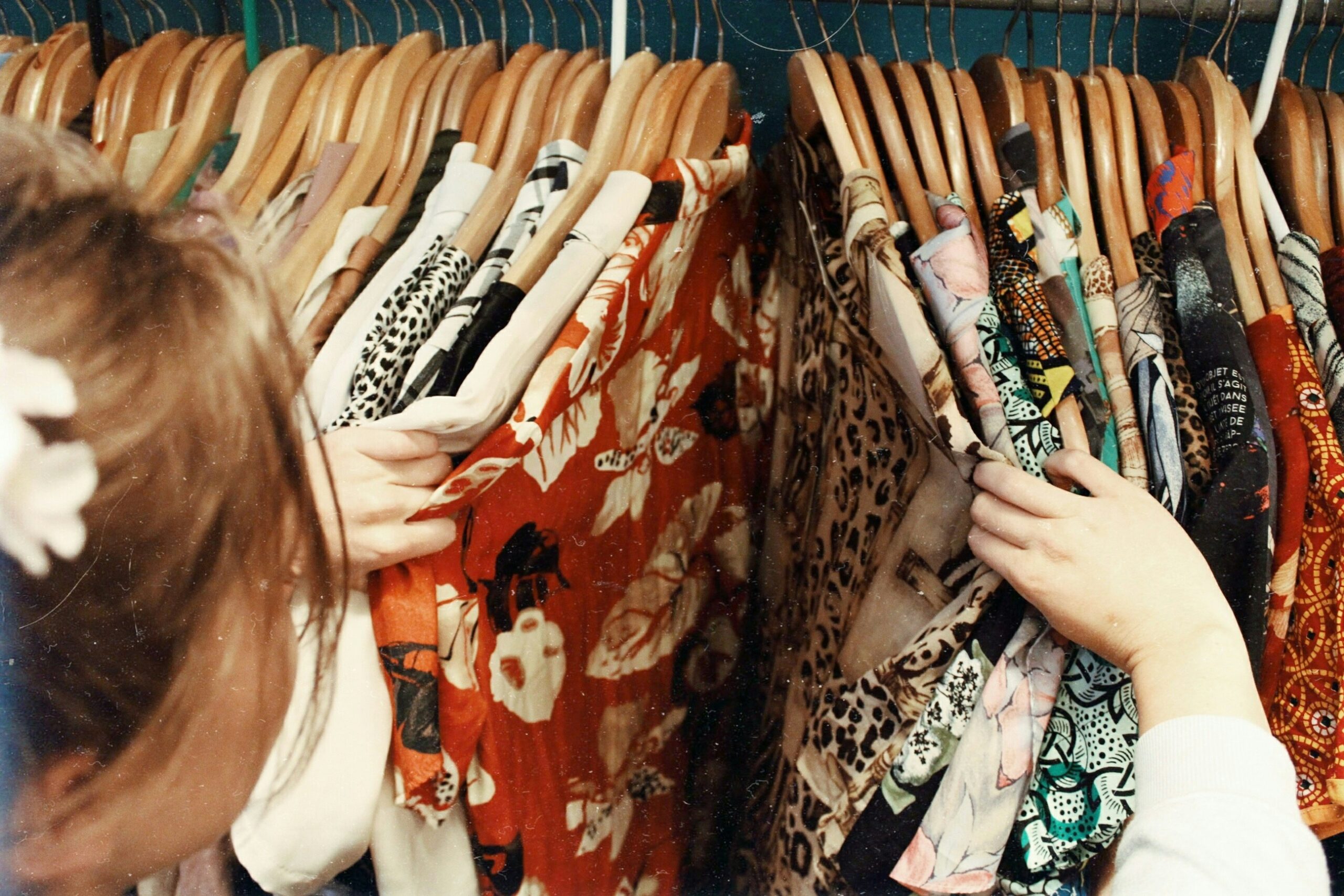This week, a long-simmering conflict between Saks Fifth Avenue and the brands it works with spilled out into the open.
To recap: on Feb. 14, Saks Global chief executive Marc Metrick sent a letter to roughly 2,000 brands that sell at Saks Fifth Avenue, Neiman Marcus and Bergdorf Goodman. He acknowledged frustration with late payments going back 18 months, promised to make all vendors whole and pay for new merchandise shipments within 90 days of receipt.
The response was immediate, and severe. In offices, studios and boardrooms, outraged founders, designers and CEOs fumed at what they viewed as another attempt by Saks to kick the payments can down the road, along with a veiled threat to get in line or risk being dropped by America’s biggest luxury wholesale buyer.
The wholesale business has always been defined by a push and pull between retailers and vendors. Department stores need a strong mix of established and up-and-coming designers to attract customers, and the designers need the marketing reach and physical touchpoints a quality store can provide. If occasionally there’s friction over unsold inventory or payments , both sides have eventually found a way to work things out.
Why then did the Saks letter seemingly cross a line for so many brands?
Partly, the reaction reflects anxiety about the state of the industry. Multi-brand retail has experienced a prolonged period of turmoil, as the sector’s biggest names struggle to reverse sliding sales and keep up with consumer preferences that are evolving much faster than stores founded a century before the invention of TikTok can follow. Respected retailers have failed, including Barneys and Matches Fashion. Often, brands have been collateral damage, losing valuable inventory and getting stuck with unpaid invoices they were counting on to make it to the next season. With global luxury sales in a slump, things will likely get tougher for independent brands, before they get better.
Saks’ acquisition of Neiman Marcus last year was supposed to represent a new chapter. “We took a big leap to get this deal done, but we did it so we can strengthen not just our company but strengthen our ability to be a great partner and to grow the industry,” Metrick told BoF this week.
This gets at the heart of brands’ frustrations: Saks Global has raised billions of dollars in financing, from companies including Amazon and Salesforce that, to a small fashion brand, appear to have limitless resources. Yet, the payments issue has dragged on, and worsened. Now it isn’t just Saks delaying payments, but Neiman Marcus and Bergdorf Goodman too. It’s not hard to see why so many brands jumped to the conclusion that Saks Global’s plan to save American wholesale was to leverage its new heft to squeeze suppliers.
The letter also stoked fears that Saks Global sees more potential in the buildings that house its stores than what’s inside them. That’s been the fate of struggling department store chains in the past, including Sears and J.C. Penney. Macy’s has repeatedly fended off activist investors advocating for the same strategy. Closer to home, Saks parent HBC sold the Manhattan flagship of Lord & Taylor, America’s oldest department store, for $850 million in 2017. Three years later, the chain filed for bankruptcy, and closed its last stores in 2021. Its new owner plans to use its logo to sell bedding and footwear online.
Saks, Neiman Marcus and Bergdorf Goodman are unlikely to meet such a grim fate anytime soon. What then can Saks Global do to rebuild trust with its vendors?
For starters, it must stick to the terms of the Feb. 14 letter, if not exceed them. Some brand representatives who spoke with BoF said late payments were better than no payments, and others seemed open to the extended timeline to be made whole, so long as it didn’t involve hounding Saks for each payment, an experience many told BoF they knew all too well from the last 18 months.
With the question of money owed off the table, Saks can move forward with building the great American luxury retail giant it’s promised. Here the company should take a page from one of its rivals, Bloomingdale’s, and treat brands as a partner in whatever strategy it lands on in the coming months.
Under CEO Olivier Bron, a critical component to Bloomingdale’s growth strategy is to invest in vendor relationships by welcoming emerging brands and partnering with them on marketing efforts through events and improved shop-in-shops. “My obsession is how we become more and more relevant for our brands and how we can play a role in their retail strategy,” Bron told BoF in October.
As angry as brands are today, for many it’s in their best interest to forget Saks’ transgressions, if not to forgive them. Much as they might wish it weren’t so, most brands still need multi brand retailers to thrive. Even large brands struggle to be discovered online, where it’s easy to be reduced to one of thousands of lookalikes in an endless grid of products. Most independent brands lack the resources to open their own stores. If they want to grow beyond a certain size, they need wholesale. And in today’s market, if they want the exposure and sales that come with it, that means they probably need a healthy working relationship with Saks, Neiman Marcus and Bergdorf Goodman.
But in order for that to happen, Saks needs to pay on schedule and build back the trust they have lost with brands in the wake of this week’s letter, and years of slow payments. Otherwise, the future looks bleak for both the department stores and their vendors.
THE NEWS IN BRIEF
FASHION, BUSINESS AND THE ECONOMY

Prada evaluating possible Versace bid, sources told Bloomberg. A potential buyout by Prada could see Versace returning to an Italian owner after other big names in the industry were scooped up by global players. Current owner Capri Holdings reported the brand’s revenue for the third quarter of the current fiscal year totaled $193 million, a 15 percent year-on-year decline.
Coach parent Tapestry to sell Stuart Weitzman footwear brand for $105 million. The divestment comes months after Tapestry said it was focused on driving growth for its organic business and had “significant runway ahead.” The brand reported an increase in full-year loss to $21.2 million from $6.7 million a year earlier.
OTB’s annual sales fall 4 percent despite growth at Diesel and Margiela. The company reported a turnover of €1.8 billion ($1.88 billion) for the full year 2024, down 4.4 percent largely due to the wholesale downturn. Positive performances were recorded for flagships Maison Margiela, with sales up 4.6 percent, and Diesel, with a 3.2 percent growth.
Nike launches new fitness brand with Kim Kardashian’s Skims. The companies are working on an “extensive line” of apparel, footwear and accessories together under the brand NikeSkims. The new partners say they have long-term vision for body-fitting activewear for women.
De Beers takes another hit as diamond woes bite. Owner Anglo American posted a $3 billion writedown on the unit, which is struggling to navigate a collapse in Chinese demand and increasing competition from lab-grown stones. Anglo said it hopes to progress its planned De Beers exit in the second half of the year.
Diane von Furstenberg inks distribution deal with Zalando. The American dress brand is trading traditional wholesale for exclusive deals with regional giants as part of its revamp strategy. ‘I had to take back control of business, but do it in an unconventional way,’ von Furstenberg said.
Birkenstock sales jump on high-end clog boom and Asia expansion. Sales rose 19 percent to €362 million ($378 million) in the three months through December from a year earlier, with momentum especially strong in Asia and for closed-toed footwear. Still, the company’s shares fell by about 5 percent in premarket trading in New York.
Forever 21 plans hundreds of store closures in its second bankruptcy. The US-based operator of Forever 21 Inc. is preparing to close at least 200 locations as part of a looming bankruptcy process. At its height, Forever 21 operated more than 500 locations in the US and at least 800 worldwide.
TikTok grabs market share from Shein despite looming risks. Observed sales grew 153 percent for TikTok Shop during the month, compared with 26 percent for Shein and 28 percent for Temu. Losing market share to rivals could deal another blow to Shein, which is under pressure to cut its valuation in a potential London IPO to around $30 billion.
Trump antitrust enforcers to keep Biden-era merger rules. FTC chair Andrew Ferguson said maintaining consistent standards for merger reviews is key for the business and legal community. The US Chamber of Commerce and other business groups criticised the guidelines, saying they would chill merger activity.
Italian court lifts controls placed on Armani company over labour practices. Giorgio Armani Operations had outsourced the production of leather goods to two companies, which in turn subcontracted the work to four Chinese companies with workshops on the outskirts of Milan. The company has since adopted the required organisational model and supplier control procedures, the Milan court said.
EU moves closer to putting a waste tax on fashion. The deal between the European Union’s Parliament and Council requires all EU countries to establish Extended Producer Responsibility schemes, making companies responsible for covering the costs of recycling textiles at the end of their life. The schemes would come into effect within 30 months of the directive.
THE BUSINESS OF BEAUTY

Kayali bought by co-founder and private equity firm General Atlantic. The sale will allow the beauty company’s owners to buy back a stake held by TSG Consumer Partners since 2017. Kayali founder Mona Kattan will own the fast-growing fragrance business with private equity investor General Atlantic. Kayali will operate as an independent company and Kattan will remain as CEO.
Shiseido shares rally after activist investor takes stake. London-based investor Independent Franchise Partners reported a 5.2 percent stake in Shiseido and said that it may make important proposals to the company, according to a filing to Japan’s Finance Ministry. Still, the company’s shares are down around 5.2 percent this year compared to the broader Topix index’s 0.7 percent fall.
California bill would ban the sale of anti-ageing skincare to children. The legislation targets beauty companies marketing “potent and harsh” ingredients like retinol, glycolic acid and vitamin C to minors. The bill still has to pass a number of committees. If approved, it will be signed into law by October, with the new restrictions going into effect in 2026.
PEOPLE

Kering names general secretary and strategy chief. Mélanie Flouquet is being promoted from chief strategy officer to general secretary, a newly created position that aims to “strengthen Kering’s governance and risk management globally.” Former BCG director Joël Hazan will succeed Flouquet as chief strategy and development officer. Both positions take effect on March 1.
MEDIA AND TECHNOLOGY

Edward Enninful launches a media and entertainment company. EE72, co-founded by the former British Vogue editor and his sister Akua Enninful, will develop content, experiences and products in partnership with top talent and companies. The company will be based in New York City with an office in London.
The Face magazine gets a major museum show. London’s National Portrait Gallery examines how the loud, left-field British style bible helped drive two big changes in fashion photography. The splashy exhibition features more than 200 photographs by 80 photographers.
Rednote fades as TikTok doubles downloads on return to iPhones. In the five days following TikTok’s re-listing on Apple Inc.’s iPhone app store and Alphabet Inc.’s Google Play, downloads of social app Xiaohongshu plummeted by 91 percent, according to Sensor Tower data. Competitors that had gained from its brief removal also saw declines.
Compiled by Yola Mzizi.








